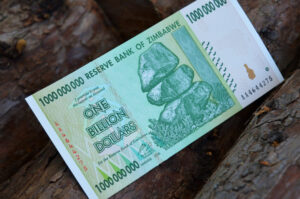Last updated on May 9, 2023

| In recent years, alternative currencies such as Bitcoin, Dogecoin, and Ethereum have gained popularity through social media and word-of-mouth. However, not all alternative currencies are cryptocurrencies. Before 1850, most forms of money were alternative currencies, and they still exist today in contrast to government-backed fiat currencies like those used by Australia or Switzerland. Alternative currencies offer a different way to facilitate the exchange of goods, services, or properties using a different form of money. Community currencies, a type of alternative currency, have proven effective in small, tight-knit communities like the Basque Country in France or the Berkshires region in Massachusetts. The currencies used in these areas, the Eusko and the Berkshare, respectively, are designed for local transactions, such as purchasing goods at a farmer’s market. According to a report by the New Economics Foundation, community currencies have several advantages, including promoting local economic development, supporting small businesses, and providing a stable currency that can protect against inflation. However, alternative currencies have some limitations. For example, they may not be widely accepted outside of their local communities, and their value can be subject to market fluctuations and inflation. In addition, the lack of direct government backing may make some people hesitant to use them. That being said, community currencies can still provide a defense against government-led inflation and stimulate local economies. By being a stable currency with a fixed exchange rate to an outside fiat currency, a high adoption of these currencies can normalize a smaller economy even as a larger one is going head-over-heels. According to a study by the University of Massachusetts Amherst, the Berkshare has been successful in promoting local economic development and supporting small businesses in the Berkshires region. In conclusion, alternative currencies can offer a different way to facilitate transactions and promote local economic development. While they have limitations, community currencies such as the Eusko and Berkshare have been successful in small, tight-knit communities. By being a stable currency with a fixed exchange rate to an outside fiat currency, a high adoption of these currencies can normalize a smaller economy even as a larger one is going through economic turmoil. |
Complex Terms:
Inflation: a sustained increase in the general price level of goods and services in an economy over a period of time
Market Fluctuations: the rise and fall of prices in a market due to changes in supply and demand or other factors
Normalization: the process of making something normal or standard, in this case, making a smaller economy more stable by adopting a stable currency with a fixed exchange rate to an outside fiat currency
Promotion: the act of supporting or encouraging the growth or development of something, in this case, local economic development and small businesses








Comments are closed.